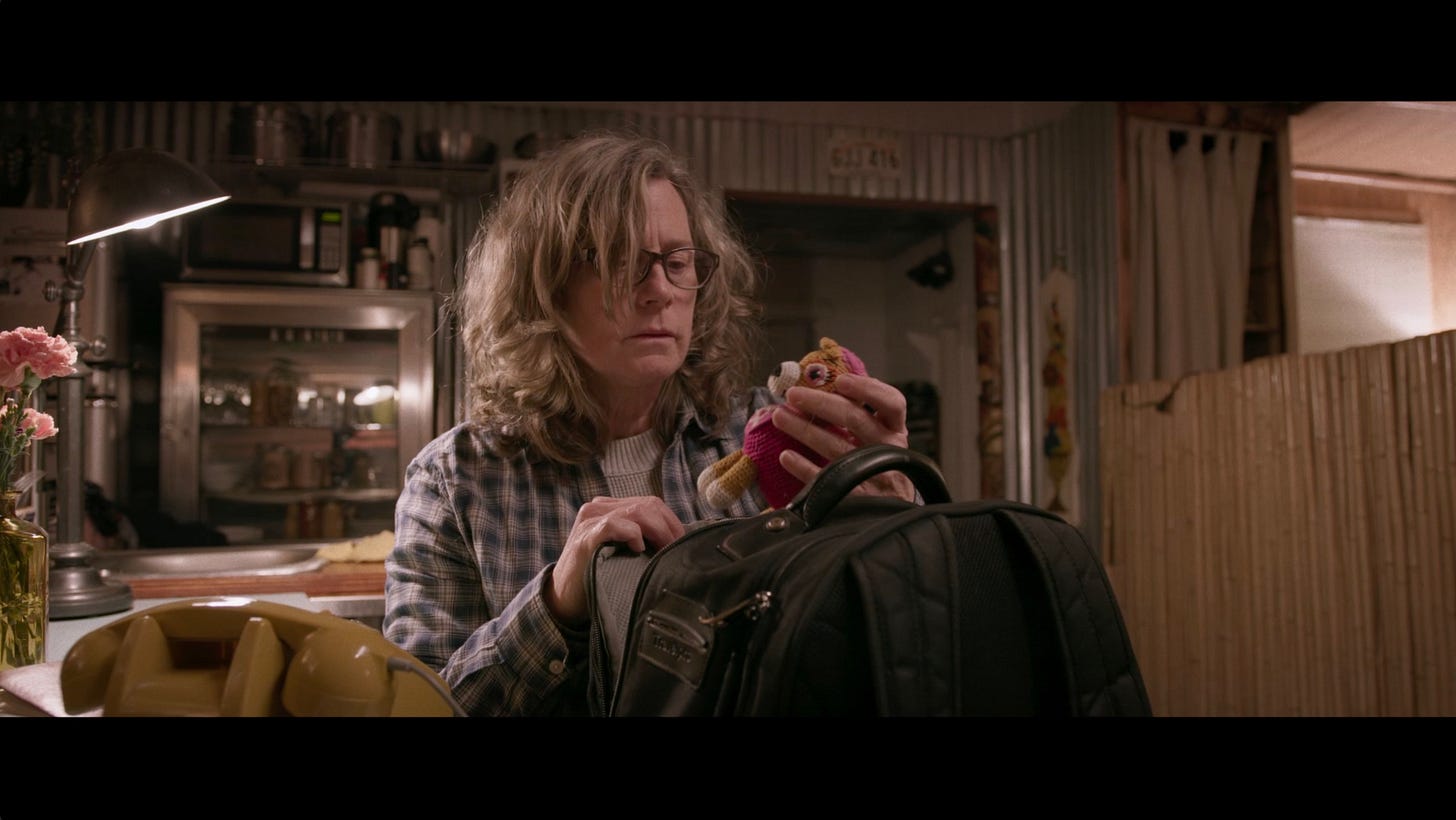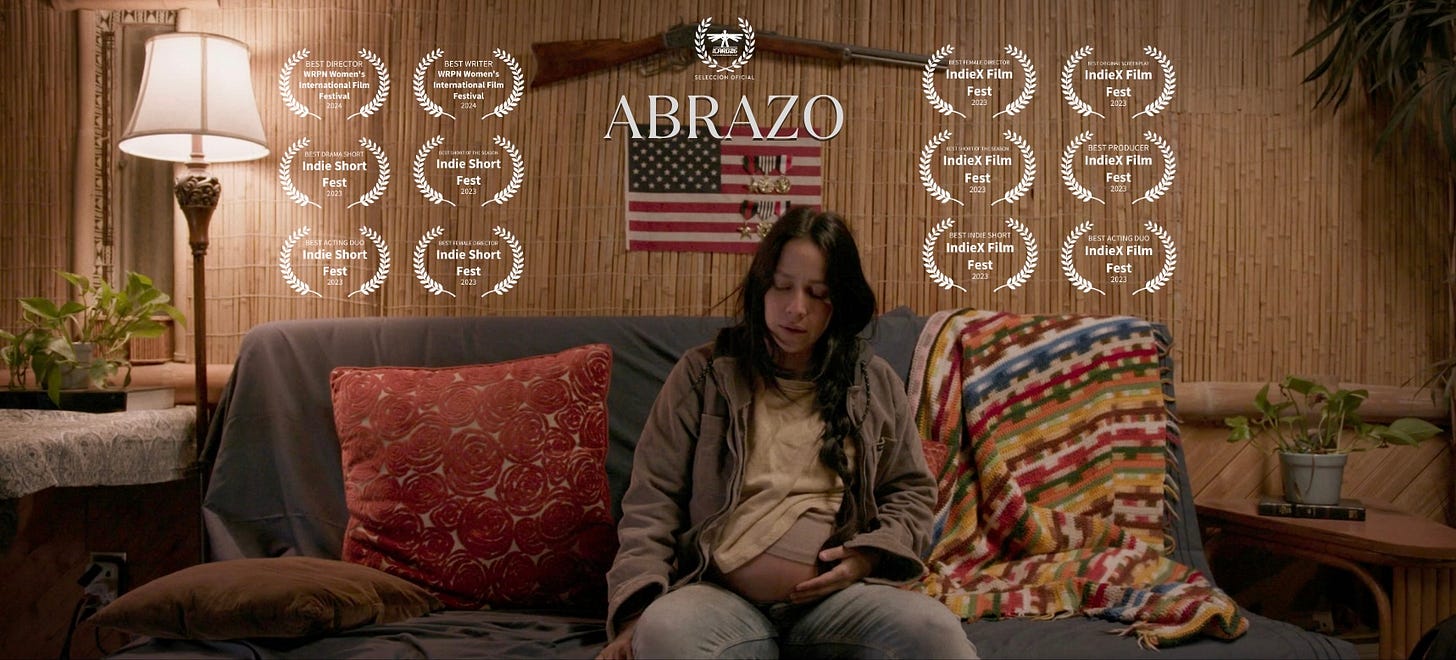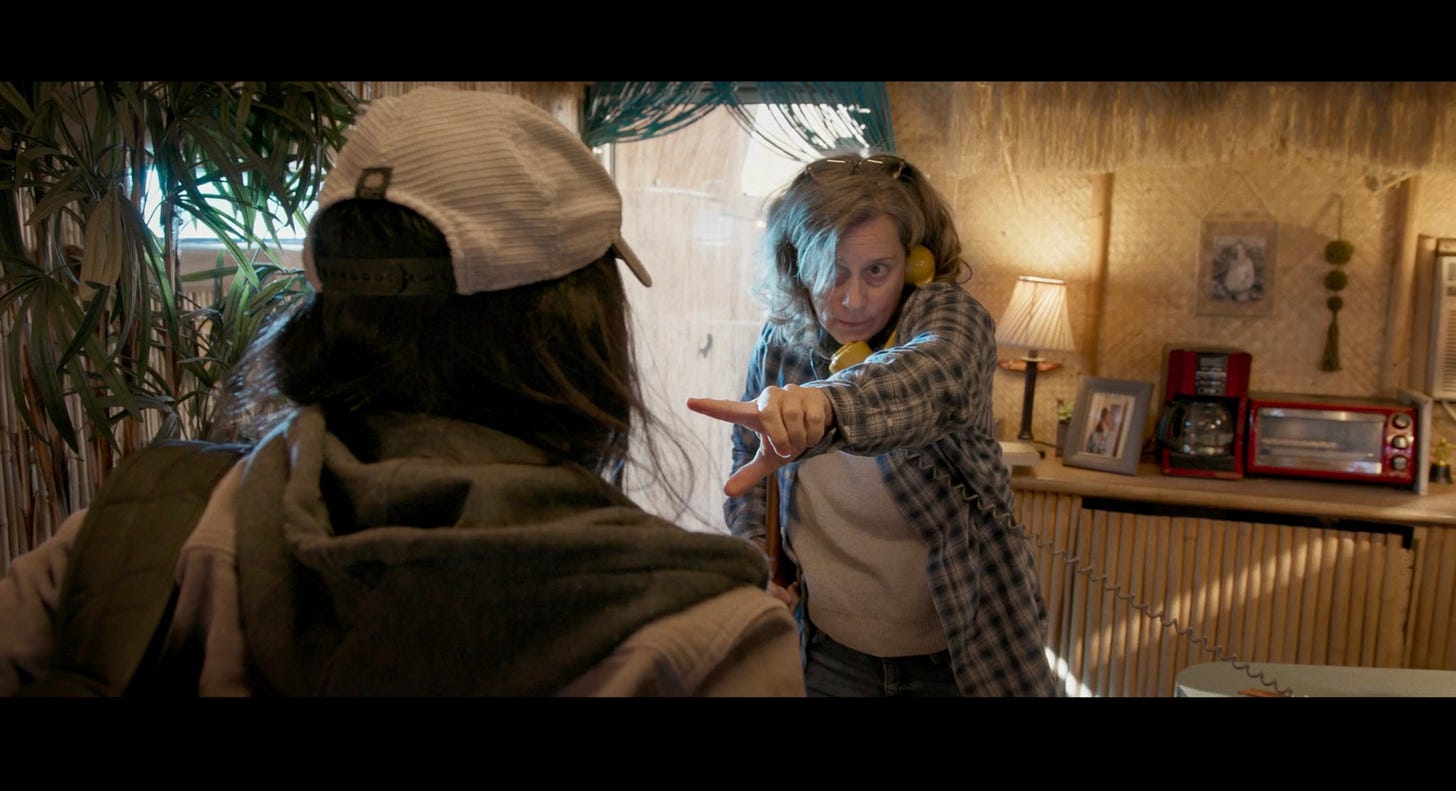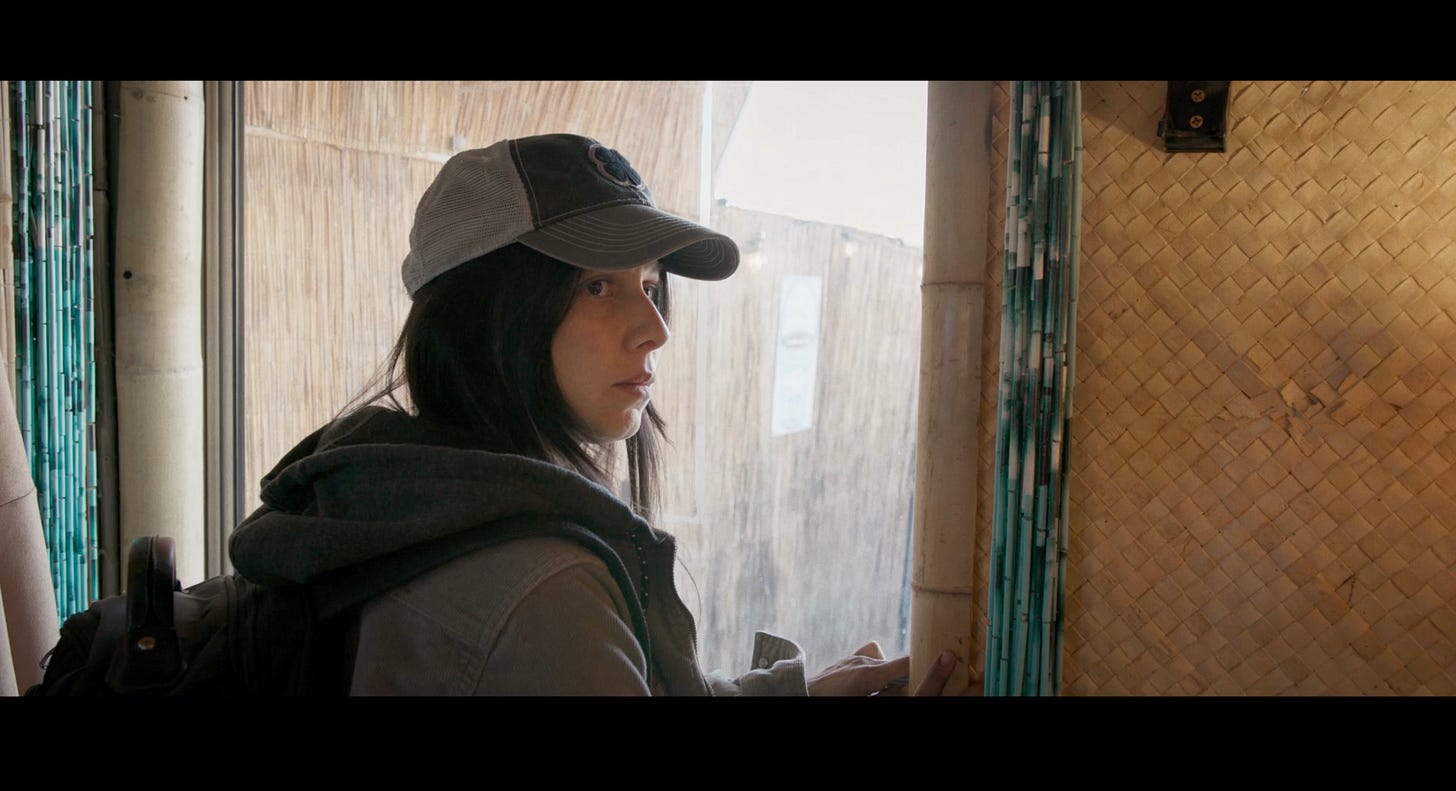A Filmmaker’s Bold Answer to the US Border and Immigration Problem
I believe in a more human response to immigration, and film is how I try to bring that vision to life.
A few weeks after completing my short film Abrazo, I came across a news story that left me stunned. A pregnant Guatemalan woman had been found alone and disoriented in the Arizona desert, near the border wall. The article was published by azcentral, but it felt like it could have been written about my film.
Abrazo tells the story of a pregnant Central American woman who collapses in the desert, only to be discovered by an unlikely savior: a conservative North American woman. The two women could not be more different—politically, culturally, ideologically—but their encounter forces them both to confront their assumptions and their shared humanity.
When I wrote Abrazo, I believed the scenario was plausible. I had done the research, spoken to migrants, and followed the headlines. But reading that article was still a gut punch. It made the story real. Not just emotionally resonant, real. I had set out to write a fictional story, but reality had already written it, in harsher terms than I could have ever captured.
I am a migrant myself. I was born in Paris to Colombian parents, raised across Italy and Colombia, and now split my time between Los Angeles and Florence. Even though I grew up in different countries, I’ve always felt like a Latina at heart. Both of my parents are Colombian, and I spent my entire adolescence in Bogotá. That period shaped me deeply—my identity, my culture, my roots.
When I moved to the United States in my twenties, I arrived expecting the life of a Latina immigrant. In New York, I felt embraced. It was a beautiful melting pot of cultures and languages, a city where being an immigrant didn’t make you different; it made you part of something. Later, I moved to Los Angeles and found another beautiful community, this time of artists. But two decades later, the landscape has changed. America doesn’t feel as welcoming anymore.
Today, being an immigrant can feel like something to hide, not celebrate. For many, it’s become a source of fear. We are too divided. And that’s exactly why I felt the need to tell a story like Abrazo, to show Latinos as they truly are: kind, hard-working, warm, and deeply empathetic. Not statistics or stereotypes. Human beings.
With Abrazo, I wanted to tell a story where compassion doesn’t come from who you expect, and where no one is reduced to a label.
Norma, the conservative woman in the film, isn’t a villain. She’s a human being with her own struggles. Her daughter has gone missing after participating in the January 6th riots, and she’s caring for a bedridden husband who can’t even feed himself. She’s already overwhelmed and now finds herself faced with another problem: Luz, a woman she sees at first as an “illegal immigrant.”
But Luz has her own problems too. She’s eight months pregnant, dehydrated, and has been walking for days in the desert. Soon, Norma’s empathy breaks through her fear and judgment. She begins to see Luz not as a burden or a threat, but as something much simpler and much deeper: another human being. A mother. A daughter. Someone who cares.
I designed both Norma and Luz with care and without judgment. They each have their own truths, their own beliefs, and their own pain. Neither one is right or wrong. They’re just two people, caught in a moment where the only thing they truly have is each other.
In the end, Abrazo is about two women who, against all odds, find a sliver of common ground. They are not enemies. They are just human; two mothers, two strangers, doing the best they can with the circumstances life has handed them. It’s the grace they show each other, despite their differences, that allows them to survive. And maybe that’s something we could stand to see a little more of in the world right now.
Film has that power to bypass the rational mind and go straight to the heart. That’s why I make movies. Not just to entertain, but to shift something inside the viewer. To make them uncomfortable, and then make them care.
We are living through a global migration crisis. Climate change, conflict, and economic instability are pushing people across borders in search of survival. But the debate around migration often lacks the most essential ingredient: humanity. My goal as a filmmaker is to reintroduce that. Not with slogans or speeches, but with characters, dilemmas, and unexpected moments of grace.
In telling the story of Abrazo, I wasn’t just trying to reflect the world; I was trying to imagine a better one. One where compassion can cross even the most fortified borders.
Because sometimes, the most radical act is simply to embrace.
Paola Baldion is a Colombian-born filmmaker based between Los Angeles and Italy, whose work explores themes of immigration, identity, and human connection.





